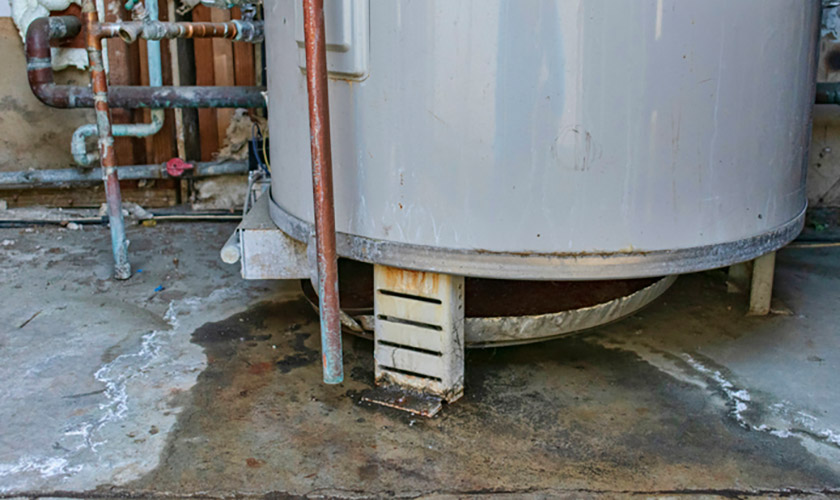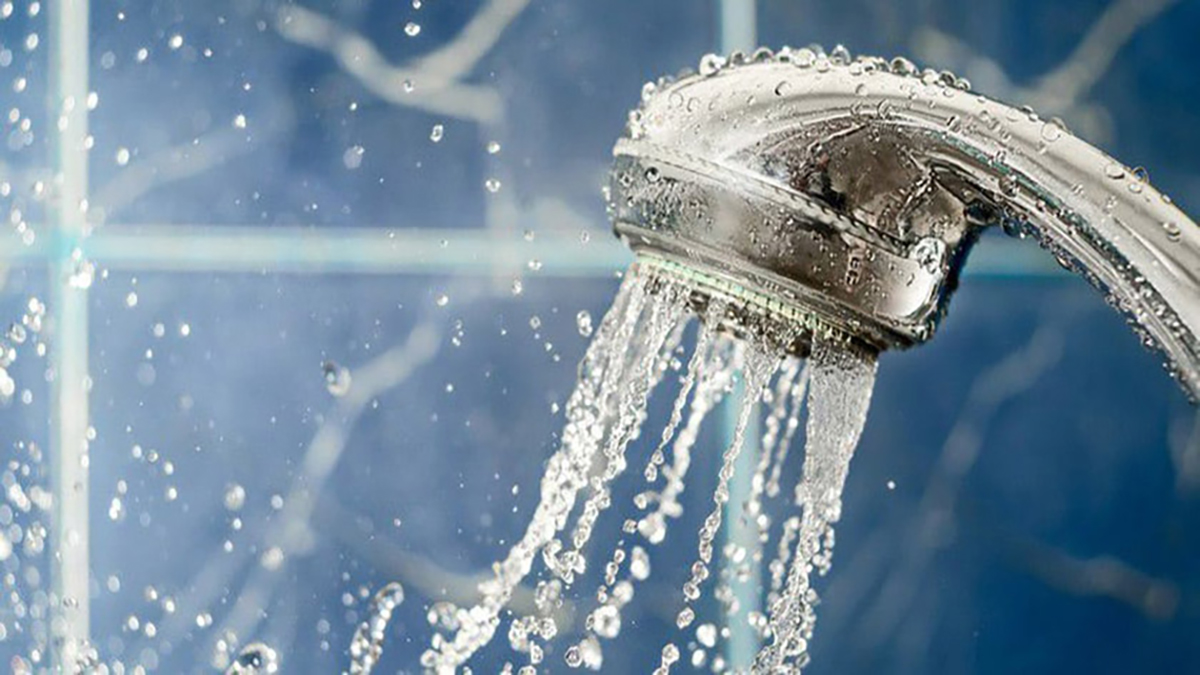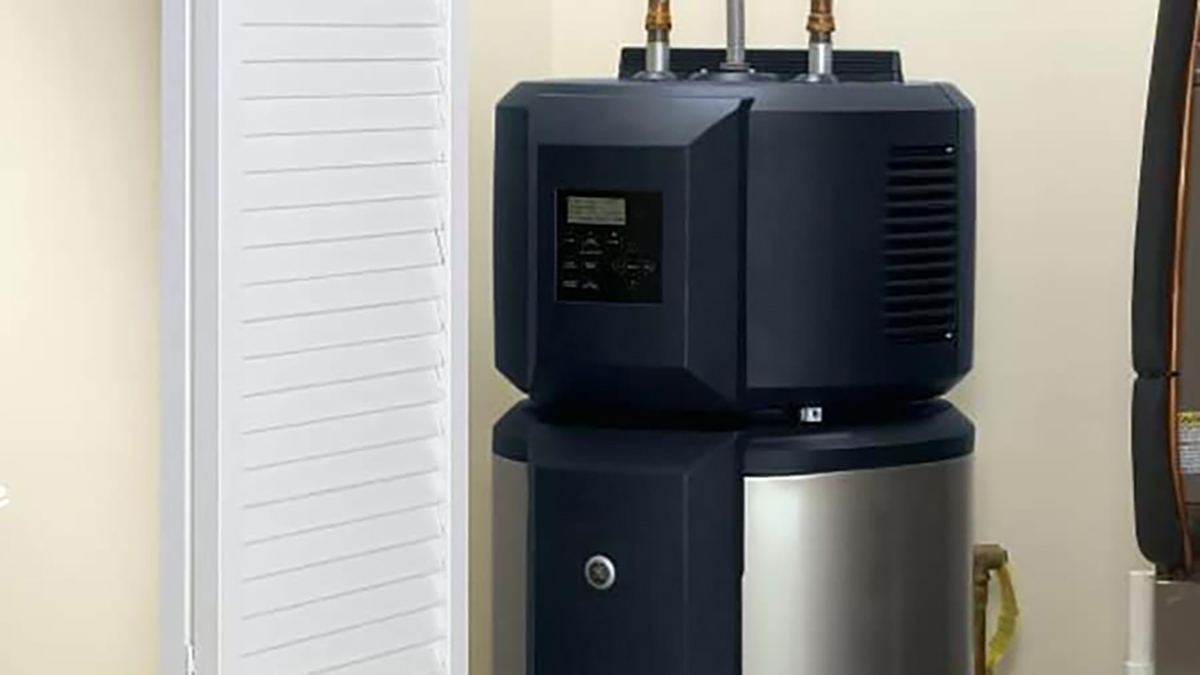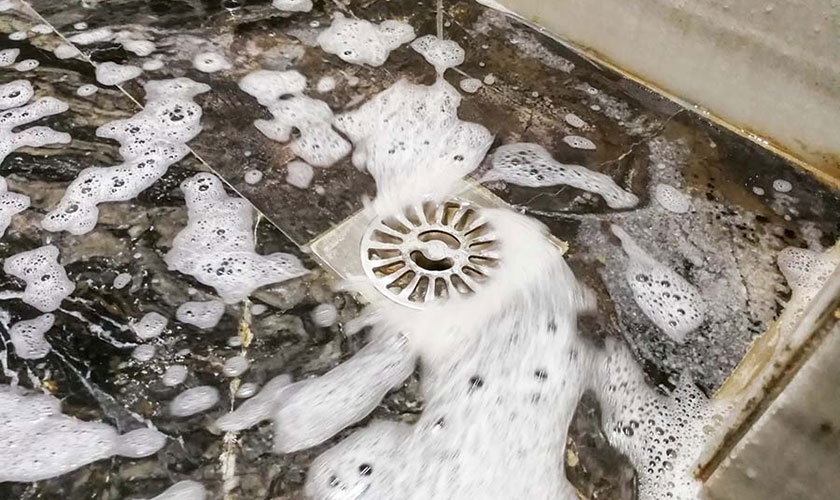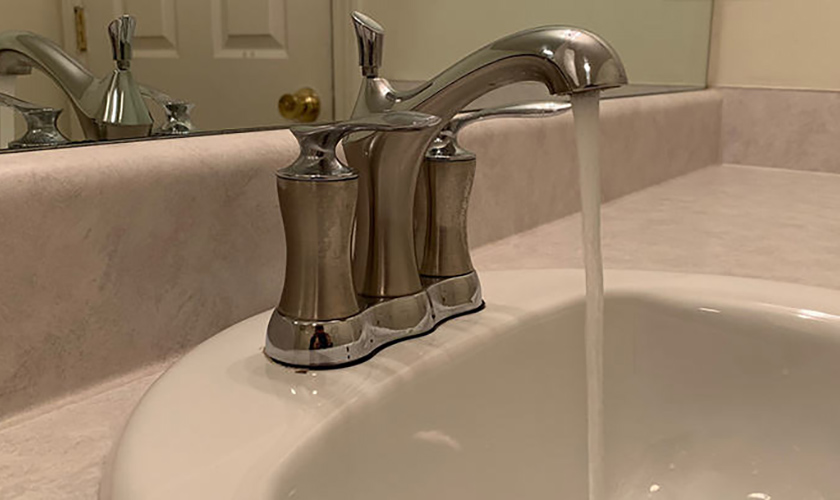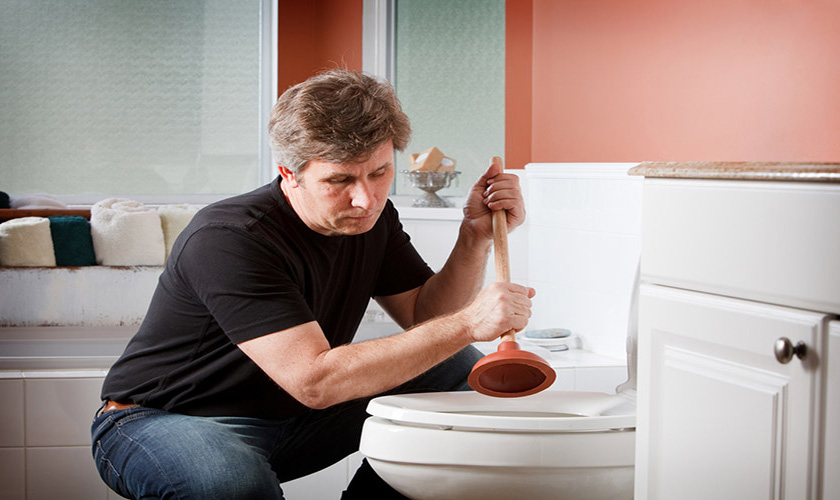A high-quality water heater incorporates a safety mechanism that serves as protection for your household. A big part of that safety means that the unit does not leak. Unfortunately, even the best unit can develop leaks. So, is a leaking water heater dangerous?
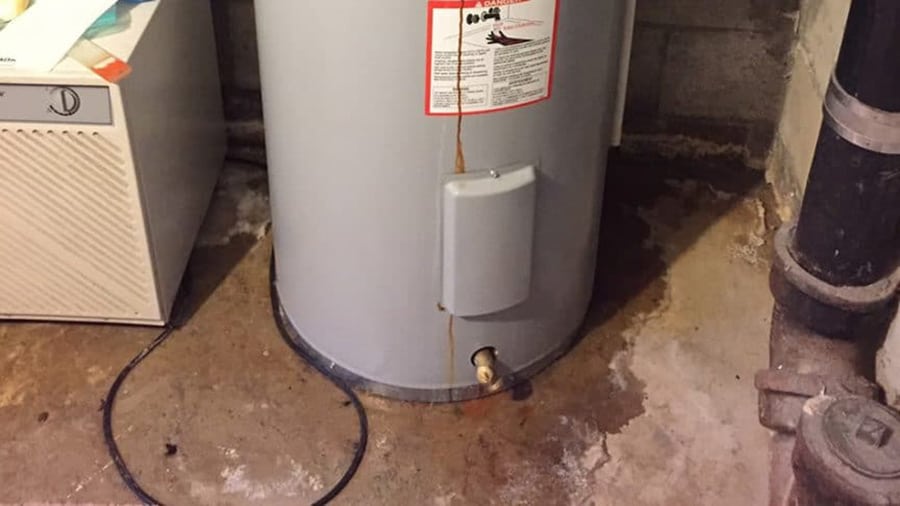
When a water heater leaks, it can present a scalding risk which is dangerous. Water leaking from the temperature and pressure valve is hazardous and, while rare, may result in an explosion.
The danger risks associated with a leaking water heater include:
- Personal injury caused from scalding water
- Property damage caused from leaking water
- Personal injury and property damage caused from a water heater explosion (rare)
This post will strive to highlight the danger of a leaky water heater. The aim is not to cause your worry but rather to enlighten you on the telltale signs of a dangerous leak in your water heater and how to address them.
Signs of a Leaking Water Heater
Water heaters are often installed out of sight and in nooks of the house that are not visible. As a result, you may not outright see leakages until some symptoms develop in your plumbing system or they become visible through the ceiling or a wall that is close to the water heater.
Here are some signs of a leaking water heater that should concern you:
- Lack of hot water from your faucets
- Water pooling at the base of the water heater
- Loss of water pressure in faucets
- Leaks from the pressure release valve
- Leakage of hot water
- Warped or stained ceiling
Where Water Heater Leaks Occur (and How to Fix Them)?
A water heater can develop leaks from many sections of the unit, including:
- At the drain valve
- On the inlet and outlet valves
- At loose temperature and pressure relief valves
The leak’s location will help you determine what the problem is and whether it poses any danger. The site is also a good indicator of whether the repair cost will be small or massive.
Of course, the ideal situation does not have any leaks at all. It is always best to make sure you deal with any leak promptly, regardless of where it pops up.
The practice of prompt response to any leakages in your water heater often ends up saving you hundreds of dollars in extensive repairs.
Leaks From the Top of the Water Heater
Generally, a leak from the top of your water heater is more straightforward to repair than a leak from the bottom section.
The valves and pipes responsible for bringing cold water into the tank and discharging hot water from it are located on the top.
These are the inlet and outlet valves.
Such leaks occur because these pipes and valves become dislodged. As a result, water will leak from the pipes.
The valves tend to get oxidized and come loose over time. That is also another cause of leakage from the top.
What to do
Fortunately, these top leak issues are easier and cheaper to repair. You can replace the pipes and tighten the valves yourself if you know anything about water heater tanks.
If you have no clue how a water heater functions, I strongly recommend getting a professional plumber to fix the leakage for you.
The benefit of using a professional plumber to conduct repairs for you is that they will effectively and safely replace the valves and inspect the rest of the unit to catch anything that may be out of place in time.
The danger of a water heater explosion is usually leakage on the temperature and pressure (T&P) valve.
A T&P valve on your water tank is located on the side of the unit and near the top. It is a crucial safety feature on the tank as it helps regulate pressure and temperature in the water heater.
It’s worth noting that the T&P valve is designed to release water and steam. It does so to offset excessive heat and pressure in the tank. Typically, the release of water happens when the temperature inside the tank rises to 210° F, and the pressure climbs to 150 PSI.
The valve that drains the water is attached to the tank from the upper section. It comprises a drain pipe that runs down the length of the tank.
If you see excessive water leaking from this valve, turn off the power and water supply to the tank immediately and contact a professional plumber.
Water leaking from the T&P valve indicates unsafe pressure and temperatures in the heater, and in some cases, the water tank could explode.
If you want the release of pressure and water to stop, you can lower the thermostat of the water tanks incrementally by 10 degrees. When you observe that the T&P valve connection leaks, you should call a professional plumber soonest to fix the issues.
Water leakage from that part of the water heater is a sure sign of unsafe levels of pressure and heat. Those two components are the major culprits for water tank explosions.
As you wait for the plumber to arrive, it is highly recommended that you turn off the power and the water supply that feeds the water heater.
Leaks From the Bottom of the Water Heater
These are leaks that you may experience around the drain valve, or the unit itself may be the one leaking.
If the heater itself is the culprit, it may mean it is damaged from the inside.
What to do
If the leakage from your water tank results from an internal issue, the plumber can do nothing, and the only solution is a replacement of the entire water heater.
Internal leakages are a result of age and sediment build-up in your hot water tank.
This problem usually starts when your tank gets to the middle of its life cycle, especially if the maintenance has not been ongoing through the years.
At that age, your water heater becomes prone to magnesium and calcium deposits to its base. When these minerals build up over time, they cause cracks and holes in the tanks, leaking from the bottom.
In such a case, there’s no number of repairs that can solve the leaks. Only an entirely new unit will suffice. However, proper maintenance of your water tank will help preserve the optimal performance of the water tank.
Locations with hard water will face this issue more prevalently and sooner than areas with soft water. But it’s bound to occur at some point as your unit ages, regardless of the state of your water.
Fortunately, by flushing your water heater once every six months, the chance of sedimentation is drastically reduced, and the practice increases the longevity of your unit.
Other than the corrosion and eventual resulting cracks and pinholes in your unit, sedimentation in the water, if left unchecked, will also affect the efficiency and performance of your water heater.
Flushing your water heater every 6 months for a non-self-cleaning unit should be a priority.
Since the recommended time is once in 6 months, you want your plumber to inspect the unit thoroughly to catch any other minor or major issues that might need immediate attention.
Is it Safe to use a Leaking Water Heater?
It is not safe to use your water heater if your leakage is from the Temperature and Pressure (T&P) valve.
Therefore, it is advisable to switch off the power supply and the water supply until your plumber has had a chance to examine it.
Any leakage from your water heater should be attended to promptly.
However, the only leakage that can cause an explosion is one from a water heater’s T&P valve due to excessive temperature and pressure.
That is not to say that you should not treat other leaks with the same urgency. Delay in addressing leaks in your water tank will mean that the leaking can damage your property depending on the location of the heater.
Leaking water can cause seepage into baseboards, wood, and ceiling boards. That, in turn, will result in mildew, mold, and unsightly marks on your ceiling and walls close and below the water heater.
To prevent costly repairs, we recommend that you address any leakages from your tank promptly to avoid expensive construction repairs.
Regular examination is a priority to ensure that you catch any leaks on time and inform your plumber well in time before they cause extensive damage.
Given that leakage in a water heater is an indicator that something is wrong, it’s generally not safe to use a leaking water heater as you don’t know the extent of the problem. A leaking heater is dangerous, and therefore, one should seek the assistance of a qualified plumber to examine and fix the problem.
The sooner you fix a leakage in the water heater, the better. That’s because it is safer, and the unit is likely to perform at optimum.
How Long Will a Water Heater Last After it Starts Leaking?
Obviously, this will depend on where the leak occurs and if it is repairable. The average lifespan of a water heater is between 8 and12 years, depending on maintenance and tank condition. When water heater care and maintenance is a priority, you can get 15 to 20 years from a water heater. Provided the inner tank is in good condition, a water heater repair should be sufficient to continue using the water heater after being repaired.
Leakages from the upper section of the water heater are generally repairable without too much difficulty.
As we pointed out earlier, the likelihood of pipes and valves becoming dislodged is bound to occur sooner or later; Sooner if the installation was done carelessly and much later if the unit was correctly installed and every valve tightened accordingly.
You can tighten the valves and place the pipes properly in case they have become dislodged. If pipes or valves are damaged, you can always replace them. After fixing these leakage issues, your unit can continue its service life for more years to come.
Leakages that are internal due to cracks or pinholes in the base of the water tank are a significant problem and will often mean that your water heater service has come to an abrupt end.
They are tough to repair, and in most cases, it comes down to replacing the unit with a brand new one.
Apart from the leakages at the bottom of the tank that cut short the life of your water heater, most of the other leakages, when caught in a timely fashion and attended to by a professional plumber, will often allow the unit to provide you with several more years.
How many more years of service your unit gives after repairing a leak depends on how far along the unit is in age. When your water heater is almost a decade old and works erratically, repairs will do little to improve performance or longevity.
It usually means that your water heater is on its last legs and maybe a good time for a replacement.
It is best to take this as an opportunity to upgrade to a more modern and efficient model that’s energy conservative.
How Serious is a Leaking Water Heater?
Water leakages in a water heater should not be taken lightly and instead be addressed promptly by a professional plumber.
That’s because the leaking water can cause structural damage on the property over time and cause destruction by creating an environment where mold and mildew can thrive in your home.
No one wants to deal with unnecessary costly repairs to damaged property, especially if you can avoid them.
The best way to enjoy the comforts that a water heater provides and for the long haul is to ensure periodic maintenance is done by a professional. In the event of any leaks, be sure to call a plumber soonest to arrest the problem.
And since water heaters can explode should the pressure and temperature get to untenable levels, any leakage should be treated as an emergency.
Nothing should be left to chance when it comes to leakage in a water heater.
What to do in Case of a Leaking Water Heater?
While you may not be a professional plumber, it helps to know some necessary steps to take in the case of a leak in your water heater.
That will help you mitigate the danger and also prevent unnecessary damage. The priority is to keep people in your household safe before your plumber addresses the leakage.
- Turn off the water supply
- Turn off the power supply
- Find the location of the leak
- Call your plumber
Do not try to fix the leakage if you don’t know how to. Also, avoid having too many people prodding and poking the site of the leakage.
What may have been a small issue could become exacerbated by many “experts” trying their hand at “fixing” the unit.
Conclusion
Scheduling regular inspections of your water heater with a qualified plumber is a proactive way to catch and address any leakages early. That will keep your household safe and save you money.
Catching the leakage in time helps you prevent structural damage to your property.
To keep your heater safe for use in your home, it is critical to schedule maintenance and monitors the unit every so often.
Sources
TROUBLESHOOT YOUR WATER HEATER LEAK
How to Decide Between Water Heater Repair or Replacement


